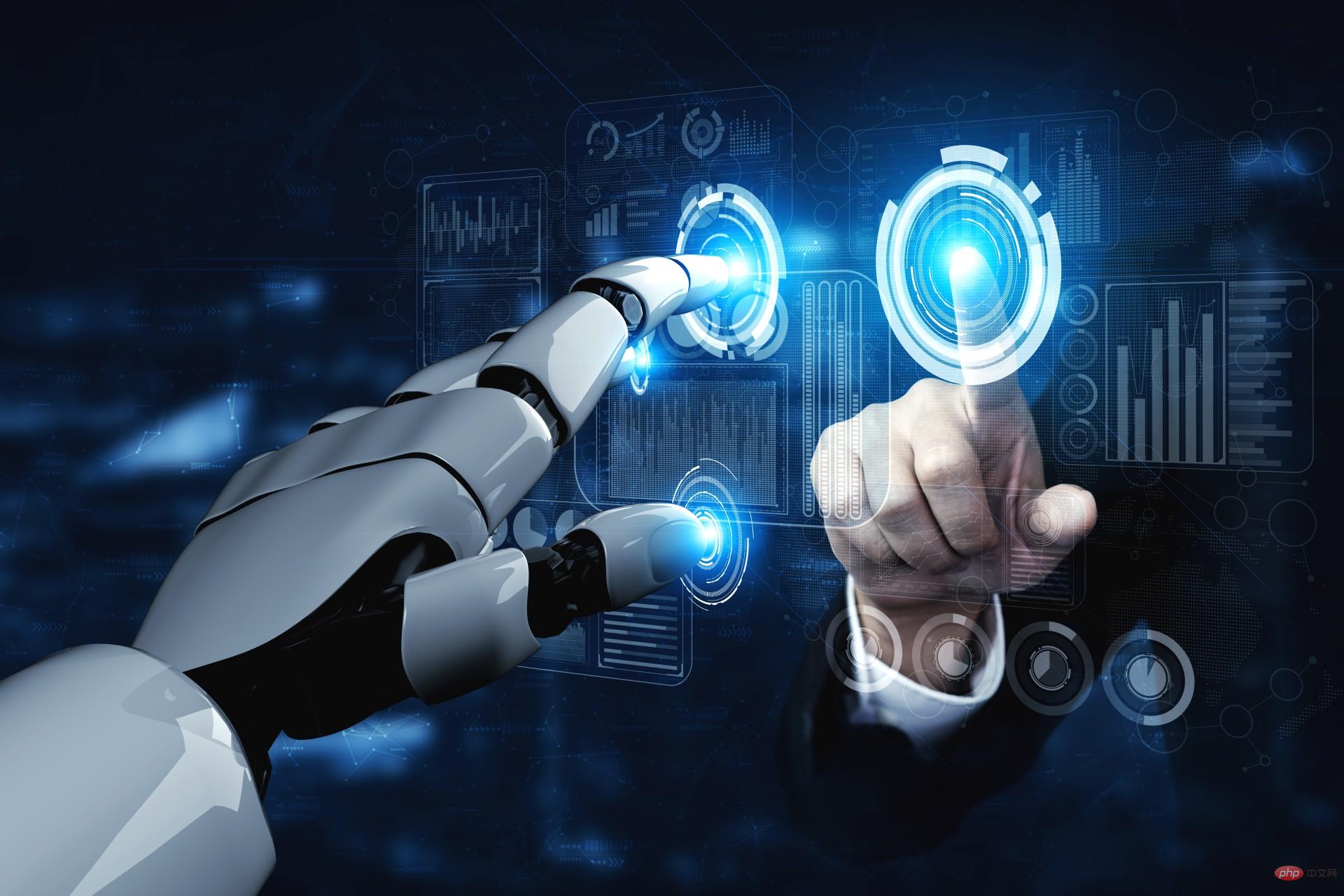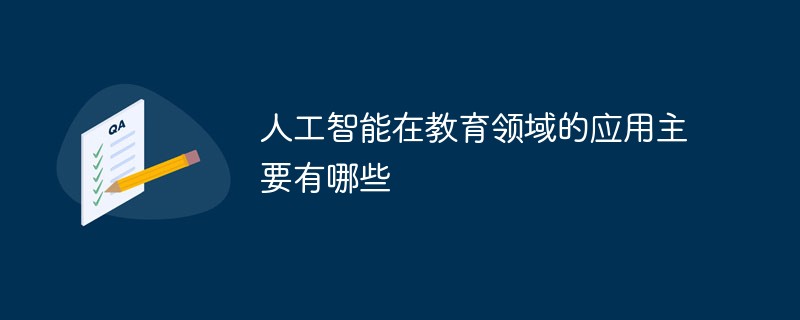 Technology peripherals
Technology peripherals AI
AI Coping with an aging global population and labor shortage: Innovative solutions from robotics and artificial intelligence
Coping with an aging global population and labor shortage: Innovative solutions from robotics and artificial intelligence
In recent years, artificial intelligence has received widespread attention for its potential to reshape industries. One area where AI holds significant promise is in solving labor shortages that many companies are grappling with. Since the emergence of COVID-19, labor shortages have created huge challenges for businesses.
The global pandemic has forced many businesses to turn to digital to adapt to a more flexible work environment and to close the workforce gap. However, those businesses that are unable to make this transition face survival challenges due to a lack of digital expertise. Adopting strategies such as recruiting digital workers can help businesses and employees cope with workflow amid labor shortages. Artificial Intelligence can play an important role, providing multiple solutions to help alleviate labor shortages in various industries
1. Increase productivity: AI-driven automation can increase productivity as machines can operate around the clock Work without taking breaks or breaks. This can compensate for labor shortages by ensuring essential processes continue without interruption, keeping up with seasonal peaks.
2. Augmented Manufacturing: AI-driven systems can optimize production processes, streamline supply chains, and improve overall efficiency. AI systems can handle repetitive tasks traditionally performed by human workers, such as material handling, palletizing, depalletizing, and high-speed pick and place, freeing them from more complex tasks.
3. Customer Service and Support: AI-powered chatbots and virtual assistants can handle customer inquiries, provide support, and guide users through the troubleshooting process. This can help businesses maintain good customer service even with a reduced workforce.
4. Reduce recruitment costs and increase retention: Bots reduce recruitment and labor expenses, and high-volume systems may pay off within a year. They also improve retention by handling repetitive tasks and saving on turnover and training costs.
5. Logistics and transportation: Artificial intelligence optimizes supply chains, routes and deliveries, minimizing human logistics intervention. Robotic vision systems count, track and classify items, helping with packaging and loading. This saves labor, time and cost.
6. Predictive maintenance: Artificial intelligence can monitor the health of machines and equipment and predict when maintenance is needed. By preventing unexpected breakdowns, companies can reduce downtime and the need for immediate repairs, which can put a strain on existing workforces.
7. Skill enhancement: Artificial intelligence technology can provide assistance and guidance to less experienced workers, allowing them to perform tasks that typically require more skilled labor. This helps close the skills gap, allowing a wider range of workers to contribute effectively.
8. Remote operation and telepresence: AI-enabled machines can be controlled remotely, allowing workers to operate in hazardous or remote environments without being physically present. This is particularly useful when there is a shortage of workers willing or able to work in such conditions.
9. Data analysis and decision support: Artificial intelligence can quickly process large amounts of data and provide insights that aid decision-making. This is particularly useful in industries such as healthcare and finance, where shortages of skilled labor can impact the speed and accuracy of critical decisions.
10. Customization and personalization: In industries such as manufacturing and retail, AI-powered machines can help create customized products or experiences that fit individual customer preferences. This level of customization may be difficult to achieve with limited manpower.
11. Agriculture and farming: AI-powered machines can assist in planting, harvesting and monitoring crops. Artificial intelligence-powered precision farming technology can increase yields while minimizing labor requirements.
12. Healthcare Support: Artificial intelligence can help medical professionals by analyzing medical images, managing patient records, and even providing preliminary diagnoses. This can help healthcare workers manage their tasks more efficiently and serve more patients.
13. Elder care: As the population ages, the demand for elderly care continues to increase. AI-powered robots can help solve the nursing shortage by providing companionship, assisting with daily tasks and monitoring the health of older adults.
14. Education and training: Artificial intelligence can facilitate online education and training programs to help improve the skills of workers in different industries, making it easier for them to transition into positions with labor shortages.
AI-enabled machines offer potential solutions to labor shortages, but concerns about job losses and workforce skills remain. Balancing the benefits of AI with worker needs and industry requirements is critical. Effective implementation of AI requires consideration of upfront investment, impact on existing staff, training and ethics issues. Artificial intelligence should augment human capabilities rather than completely replace them.
The above is the detailed content of Coping with an aging global population and labor shortage: Innovative solutions from robotics and artificial intelligence. For more information, please follow other related articles on the PHP Chinese website!
 2023年机器学习的十大概念和技术Apr 04, 2023 pm 12:30 PM
2023年机器学习的十大概念和技术Apr 04, 2023 pm 12:30 PM机器学习是一个不断发展的学科,一直在创造新的想法和技术。本文罗列了2023年机器学习的十大概念和技术。 本文罗列了2023年机器学习的十大概念和技术。2023年机器学习的十大概念和技术是一个教计算机从数据中学习的过程,无需明确的编程。机器学习是一个不断发展的学科,一直在创造新的想法和技术。为了保持领先,数据科学家应该关注其中一些网站,以跟上最新的发展。这将有助于了解机器学习中的技术如何在实践中使用,并为自己的业务或工作领域中的可能应用提供想法。2023年机器学习的十大概念和技术:1. 深度神经网
 人工智能自动获取知识和技能,实现自我完善的过程是什么Aug 24, 2022 am 11:57 AM
人工智能自动获取知识和技能,实现自我完善的过程是什么Aug 24, 2022 am 11:57 AM实现自我完善的过程是“机器学习”。机器学习是人工智能核心,是使计算机具有智能的根本途径;它使计算机能模拟人的学习行为,自动地通过学习来获取知识和技能,不断改善性能,实现自我完善。机器学习主要研究三方面问题:1、学习机理,人类获取知识、技能和抽象概念的天赋能力;2、学习方法,对生物学习机理进行简化的基础上,用计算的方法进行再现;3、学习系统,能够在一定程度上实现机器学习的系统。
 超参数优化比较之网格搜索、随机搜索和贝叶斯优化Apr 04, 2023 pm 12:05 PM
超参数优化比较之网格搜索、随机搜索和贝叶斯优化Apr 04, 2023 pm 12:05 PM本文将详细介绍用来提高机器学习效果的最常见的超参数优化方法。 译者 | 朱先忠审校 | 孙淑娟简介通常,在尝试改进机器学习模型时,人们首先想到的解决方案是添加更多的训练数据。额外的数据通常是有帮助(在某些情况下除外)的,但生成高质量的数据可能非常昂贵。通过使用现有数据获得最佳模型性能,超参数优化可以节省我们的时间和资源。顾名思义,超参数优化是为机器学习模型确定最佳超参数组合以满足优化函数(即,给定研究中的数据集,最大化模型的性能)的过程。换句话说,每个模型都会提供多个有关选项的调整“按钮
 得益于OpenAI技术,微软必应的搜索流量超过谷歌Mar 31, 2023 pm 10:38 PM
得益于OpenAI技术,微软必应的搜索流量超过谷歌Mar 31, 2023 pm 10:38 PM截至3月20日的数据显示,自微软2月7日推出其人工智能版本以来,必应搜索引擎的页面访问量增加了15.8%,而Alphabet旗下的谷歌搜索引擎则下降了近1%。 3月23日消息,外媒报道称,分析公司Similarweb的数据显示,在整合了OpenAI的技术后,微软旗下的必应在页面访问量方面实现了更多的增长。截至3月20日的数据显示,自微软2月7日推出其人工智能版本以来,必应搜索引擎的页面访问量增加了15.8%,而Alphabet旗下的谷歌搜索引擎则下降了近1%。这些数据是微软在与谷歌争夺生
 荣耀的人工智能助手叫什么名字Sep 06, 2022 pm 03:31 PM
荣耀的人工智能助手叫什么名字Sep 06, 2022 pm 03:31 PM荣耀的人工智能助手叫“YOYO”,也即悠悠;YOYO除了能够实现语音操控等基本功能之外,还拥有智慧视觉、智慧识屏、情景智能、智慧搜索等功能,可以在系统设置页面中的智慧助手里进行相关的设置。
 30行Python代码就可以调用ChatGPT API总结论文的主要内容Apr 04, 2023 pm 12:05 PM
30行Python代码就可以调用ChatGPT API总结论文的主要内容Apr 04, 2023 pm 12:05 PM阅读论文可以说是我们的日常工作之一,论文的数量太多,我们如何快速阅读归纳呢?自从ChatGPT出现以后,有很多阅读论文的服务可以使用。其实使用ChatGPT API非常简单,我们只用30行python代码就可以在本地搭建一个自己的应用。 阅读论文可以说是我们的日常工作之一,论文的数量太多,我们如何快速阅读归纳呢?自从ChatGPT出现以后,有很多阅读论文的服务可以使用。其实使用ChatGPT API非常简单,我们只用30行python代码就可以在本地搭建一个自己的应用。使用 Python 和 C
 人工智能在教育领域的应用主要有哪些Dec 14, 2020 pm 05:08 PM
人工智能在教育领域的应用主要有哪些Dec 14, 2020 pm 05:08 PM人工智能在教育领域的应用主要有个性化学习、虚拟导师、教育机器人和场景式教育。人工智能在教育领域的应用目前还处于早期探索阶段,但是潜力却是巨大的。
 人工智能在生活中的应用有哪些Jul 20, 2022 pm 04:47 PM
人工智能在生活中的应用有哪些Jul 20, 2022 pm 04:47 PM人工智能在生活中的应用有:1、虚拟个人助理,使用者可通过声控、文字输入的方式,来完成一些日常生活的小事;2、语音评测,利用云计算技术,将自动口语评测服务放在云端,并开放API接口供客户远程使用;3、无人汽车,主要依靠车内的以计算机系统为主的智能驾驶仪来实现无人驾驶的目标;4、天气预测,通过手机GPRS系统,定位到用户所处的位置,在利用算法,对覆盖全国的雷达图进行数据分析并预测。


Hot AI Tools

Undresser.AI Undress
AI-powered app for creating realistic nude photos

AI Clothes Remover
Online AI tool for removing clothes from photos.

Undress AI Tool
Undress images for free

Clothoff.io
AI clothes remover

AI Hentai Generator
Generate AI Hentai for free.

Hot Article

Hot Tools

MantisBT
Mantis is an easy-to-deploy web-based defect tracking tool designed to aid in product defect tracking. It requires PHP, MySQL and a web server. Check out our demo and hosting services.

MinGW - Minimalist GNU for Windows
This project is in the process of being migrated to osdn.net/projects/mingw, you can continue to follow us there. MinGW: A native Windows port of the GNU Compiler Collection (GCC), freely distributable import libraries and header files for building native Windows applications; includes extensions to the MSVC runtime to support C99 functionality. All MinGW software can run on 64-bit Windows platforms.

SublimeText3 Mac version
God-level code editing software (SublimeText3)

SublimeText3 English version
Recommended: Win version, supports code prompts!

Zend Studio 13.0.1
Powerful PHP integrated development environment




